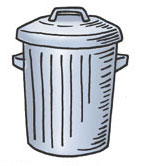 Publishers toss Booker winners into the reject pile
Publishers toss Booker winners into the reject pileJonathan Calvert and Will Iredale
"They can’t judge a book without its cover. Publishers and agents have rejected two Booker prize-winning novels submitted as works by aspiring authors.
Typed manuscripts of the opening chapters of Naipaul’s
In a Free State and a second novel,
Holiday, by Stanley Middleton, were sent to 20 publishers and agents.
None appears to have recognised them as Booker prizewinners from the 1970s that were lauded as British novel writing at its best. Of the 21 replies, all but one were rejections.
Only Barbara Levy, a London literary agent, expressed an interest, and that was for Middleton’s novel.
She was unimpressed by Naipaul’s book. She wrote: 'We . . . thought it was quite original. In the end though I’m afraid we just weren’t quite enthusiastic enough to be able to offer to take things further.'"
In a derivative
article, we find more of the same.
"Nicholas Clee, former editor of the Bookseller, said that publishers were no longer keen to take risks on untried authors because they faced fiercer competition as the supermarkets forced down prices. He said: 'Publishers tend to go for newcomers who have something sensational to offer, or established names. They’re putting big promotional efforts behind just a few titles.'
This has led to a growth in celebrity novels. For example Katie Price, the model known as Jordan, secured a deal to write two novels with Random House earlier this year.
Today’s authors have to be marketable. Taylor said: 'Being 29, blonde, good-looking and vaguely famous should be enough to get you a book published nowadays.' Although there are still middle-aged novelists who buck the trend, our rejected version of Holiday was purportedly written by a 53-year-old man."
I love this response. “Mark Lucas, of the Lucas Alexander Whitley agency, said: ‘We would love to claim that absolutely everything that came in got extensively cross-examined. But successful agencies have rather full client lists . . . when you guys do things like this, it’s time for us all to celebrate. It shows there isn’t an absolute scale of values and nor should there be.’”
I was quite suprised by the
reaction of Michael Allen, aka Grumpy Old Bookman, who called the article and the experiment, "remarkably silly."
"Modern publishing companies are, first and foremost, machines for generating a profit for their shareholders."
Wow, what hot news. Stop the presses! But how will they generate their profit? That's the issue.
"Full stop. They have nothing to with 'good books' as defined by some ivory-towered highbrow with more spare time than sense. Hence it is not remotely surprising, or improper, to find that publishers are 'obsessed with celebrity authors and 'bright marketable young things' at the expense of serious writers.' Serious writers, in this context, I understand to mean that readily recognisable group of writers who take themselves far too seriously, who produce books which very few people want to read, much less buy, and who believe, wrongly, that the world owes them a living.
Publishers are not charities; they are under no obligation to publish books which appeal to a relatively small clique of literary-fiction fans."
So are publishers "gatekeepers" who find the best writing as they are so often telling us in interviews when they want to be taken as patrons of art, or merely avaricious whores who are racing to the bottom?
More the latter, it seems these days. What is a good book? My forgotten hero of embattled writers, Jack Woodford, wrote that, to an agent, a good book is one that he can sell for a maximum amount of money with a minimal amount of effort.
Back to GOB's comments. It is one thing to recognize the conditions in which publishers operate-they extrapolate from what has succeeded-and another to endorse them as if this is the only possible business model.
If the market is flooded with ghost written celebrity-based books it's publishers who started the trend. Are reader's clamoring for these books, or do they settle for what they're given?
In her brilliant
essay from 1980 about why movies are so bad, Pauline Kael wrote:
“Financially, the industry is healthy, so among the people at the top there seems to be little recognition of what miserable shape movies are in. They think the grosses are proof that people are happy with what they're getting, just as TV executives think that the programs with the highest ratings are what TV viewers want, rather than what they settle for.”
Her analysis applies quite well to publishing, which is not surprising, as publishing is a subset of the entertainment industry.



